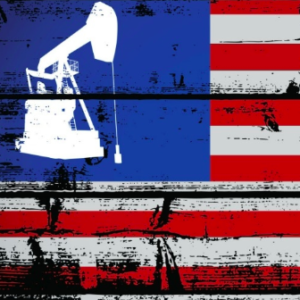Just ahead of the midterm elections, the Biden administration and its allies launched a last-ditch effort to shift the narrative around high gasoline prices, pointing the finger at energy companies and threatening new taxes and potential market restrictions. Unfortunately, bad politics breeds bad policies, with potentially devastating results for American small businesses and consumers.
It is a tale as old as Washington: Politically motivated “solutions” may sway some, but the facts say otherwise. For example, one idea under consideration by the administration is banning gasoline, diesel, and other refined petroleum exports in hope to mitigate high prices at the pump. The White House has even requested the Department of Energy assess the possible impact of banning refined petroleum products. Further, Rep. Ro Khanna, a Biden administration ally, introduced a bill last month that would temporarily prohibit the export of motor fuel during periods when pump prices are high.
In reality, that type of government intervention imposes barriers on free markets and leads to distortions that inevitably result in less production, continued high prices, and grim consequences for our allies abroad.
The problem of increased prices cannot be solved with naïve, or cynical, policies like an export ban. Gasoline and other refined products are globally traded commodities, with the U.S. representing 12.1 percent of refined oil exports globally. Basic economics teaches us a decrease in the supply of a service or commodity, like oil, while demand remains the same, means the price tends to rise. More product in the market lowers prices globally, not just in the U.S. Alternatively, banning the export of refined products would likely just decrease inventory levels – why would a company invest if they can’t sell it? – and place more upward pressure on fuel prices.
According to a study conducted by the American Council for Capital Formation, refined products originally slated for export would be trapped in our coastal refineries, mainly driven by the lack of infrastructure to transport and divert these products from Gulf region refineries to the East and West coasts. This would ultimately lead to refinery capacity decreases domestically as well as an increase in product prices in the global market. The same study concluded that “more than two-thirds of U.S. consumers will see price increases, including average increases of more than 15 cents per gallon.”
Additionally, we cannot turn a cold shoulder to our allies. During the first half of 2022, the U.S. exported record amounts of petroleum products. For example, U.S. propane exports to Europe increased by 51 percent and set a record of 349,000 barrels a day in June. And when the EU’s new refined petroleum products sanctions on Moscow take effect in February, our allies will look to the U.S. as a global leader in exports to help fill that void.
Freeing markets from government controls, and relying on private competition and cooperation, enhances efficiencies, investment, and production – all subject to consumer sovereignty. Take, for example, the removal of the decades-long ban on crude oil exports in 2015. A study commissioned by the energy industry this year found that this policy reversal led to an increase of $161 billion in U.S. GDP, the addition of an annual average of 48,000 jobs, and reduced gas prices by an annual average of 4.6 cents per gallon. Clearly, embracing isolationist policies like restricted exports does not work in our economy’s favor.
The U.S. is facing increased global energy demand, constrained supply, and geopolitical instability, a situation that would be made far worse with these misguided Biden policies. Banning or restricting the export of refined petroleum products or crude oil is not the answer in the near term or over the long haul. The Biden administration and political allies ought to focus on providing tax and regulatory relief for the U.S. energy industry, and not meddling in critical international supply chains in the name of politics.
Please follow DVJournal on social media: Twitter@DVJournal or Facebook.com/DelawareValleyJournal

